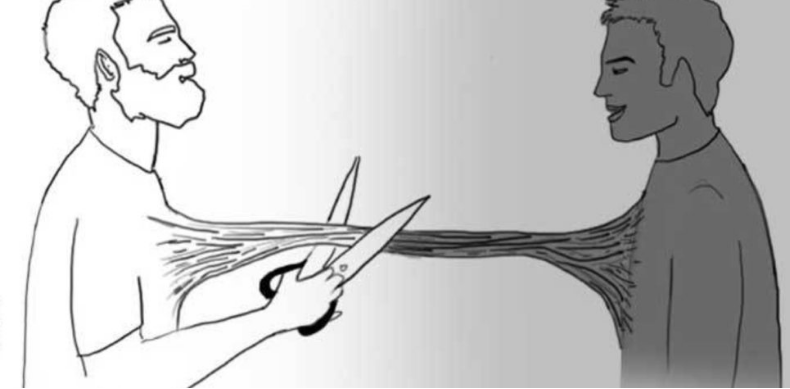It’s never easy to cut someone out of your life. And when it comes to family, it’s especially hard to accept that a family member is causing so much stress, anxiety, and pain that you can’t continue to have a relationship with them. This post is for all of you struggling to decide whether to continue a relationship with a difficult or toxic family member.
Relationship Ties
Toxic relationships can often stem from ancestral patterns and trauma. Someone’s bad behavior and negative actions may be deeply ingrained and passed down through generations. The good news is that you can change your relationships by first being in the right relationship with yourself. Many problems you experience with others may reflect your internal relationship.
These are the ties that bond you, influencing how you relate to others. Developing a healthy relationship means cutting toxic ties and creating positive ones. These ties may be linked to specific places, behaviors, or things.
Relationships grow and change, and you can guide them into healthier patterns through awareness and conscious effort. Aging is an inevitable part of life, and as you mature, you become empowered individuals with developed independence.
Healthy relationships help you become a leader without negative ties. You might spend less time with some people, but you will value every moment spent with those who matter.
This guide will help you identify toxic ties and heal yourself, enabling you to make confident decisions and build healthier relationships with your loved ones.
Identifying and Cutting Toxic Ties
- Crossing Boundaries
- Communicate your boundaries clearly and discuss the consequences of violating them. If someone frequently pushes your boundaries, say goodbye and ensure they understand your reasons. Don’t give people the negative attention they seek and maintain control over your emotions.
- Overly Judgmental Behavior
- Avoid people who constantly judge your life choices. Listen to their opinions but make it clear that you don’t appreciate being judged. Help them understand their behavior by being a good example and sharing positive stories or actions.
- Lack of Apologies
- Some people never apologize. If you don’t receive an apology, express how it makes you feel and emphasize the importance of acknowledging their part in a situation. If they refuse to change, reassess their place in your life.
- Constant Trouble
- Everyone needs peace and stability. Some people are always in trouble and seek negative attention. Try to help them without losing your self-respect. Encourage them to learn from their mistakes and improve their situation.
- Inconsistency
- If someone makes you feel like you’re walking on eggshells, tell them how you feel. Don’t let anyone manipulate or control you. Acknowledge their problem and express your expectations for how you should be treated. Explain their mistakes and share your feelings if they cross the line.
- Selfishness
- Reciprocation is vital in any relationship. Selfish people can be unaware of their self-centered behavior and take you for granted. Spend time with those who support and care for you. Sometimes, you can help someone realize their selfishness and improve the relationship. Don’t let others disrespect you, and communicate how you want to be treated.
By following these guidelines, you can cut toxic ties and cultivate healthier relationships. Remember, healthy communication patterns should focus on “I” and “we,” while unhealthy ties are often dominated by “you” and “they.”







